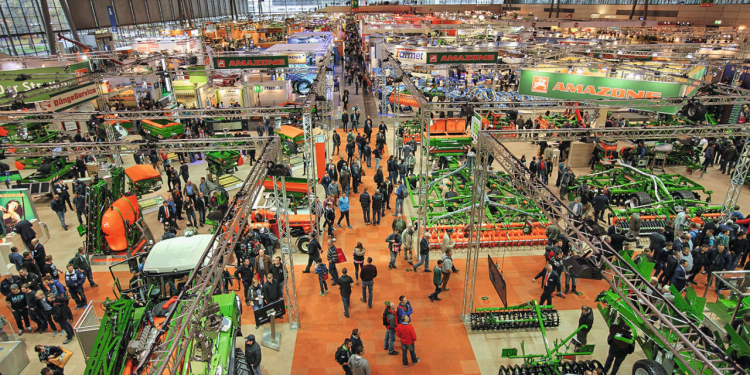Interview with Dr Markus Demmel, Deputy Director at the Institute for Agricultural Engineering and Animal Husbandry, Bavarian State Research Centre for Agriculture, Freising and the Chairman of the Agritechnica Innovation Commission
For Agritechnica 2022, 164 exhibitors had submitted their trade fair innovations for an Innovation Award. How many medals have you awarded this time and what do you think are the most important innovation drivers?
Dr Demmel: The Innovation Commission this year consists of 36 members, who are representatives from science and research, consultants and professional farmers. The jury has selected one gold and 16 silver medals. One of the main drivers of innovation is the change in the demands on agriculture. These are no longer just about increasing performance and quality of working methods, but increasingly about the contribution of technology to sustainable agricultural production.
What role do aspects like work load reduction and reduced complexity play in the further development of agricultural technology today?
Dr. Demmel: These classical criteria listed continue to be very important as they influence the daily work and economic success on the farms.
And efficiency, fuel consumption and increased productivity?
Dr Demmel: The research and development of agricultural machinery manufacturers continues to focus on these aspects. But today they are all increasingly focusing on the complete working process, its optimisation and the contribution that a new machine or an improved implement can make to it. Efficiency and productivity play a role, but no longer the only one. In addition, other aspects are becoming more and more important.
You mean topics like soil protection, catch crops, precision sowing, less chemical and more mechanical crop protection, as well as straw distribution on combine harvesters?
Dr Demmel: In the future, agricultural innovation will be increasingly measured by its contribution to the well-known sustainability goals to which agriculture has also committed itself. The topics you mentioned are related to this. But we will have to go further, for example, to the contribution of agricultural technology to the preservation or enhancement of biodiversity.
This year, the gold medal was awarded to a system tractor for Controlled Traffic Farming. The aim is to enable higher CO2 sequestration through agriculture – “carbon farming”. The reduction of CO2 emissions is also highlighted for four other silver medals. Is the topic currently still more of a welcome side effect or is CO2 reduction already a central innovation driver in the development departments today?
Dr. Demmel: I think we have to be very careful with the topic of “carbon farming” so that we don’t promise more than we can deliver. The innovations awarded by the Innovation Commission are characterised, among other things, by the reduction of CO2 emissions. Agriculture also causes CO2 emissions that we have to reduce. Agricultural machinery manufacturers have already started to work on this in the past and this is how agricultural innovations will be measured in the future. In the case of the gold medal, the CO2 issue was not the sole deciding factor, although the electric drives and the prospect of later generating the necessary electricity with fuel cells contribute to reducing direct CO2 emissions. For the jurors, the decisive factor was the innovative overall concept, which goes far beyond what has been known so far and has already been clearly realised, with all its features listed in the detailed justification.







